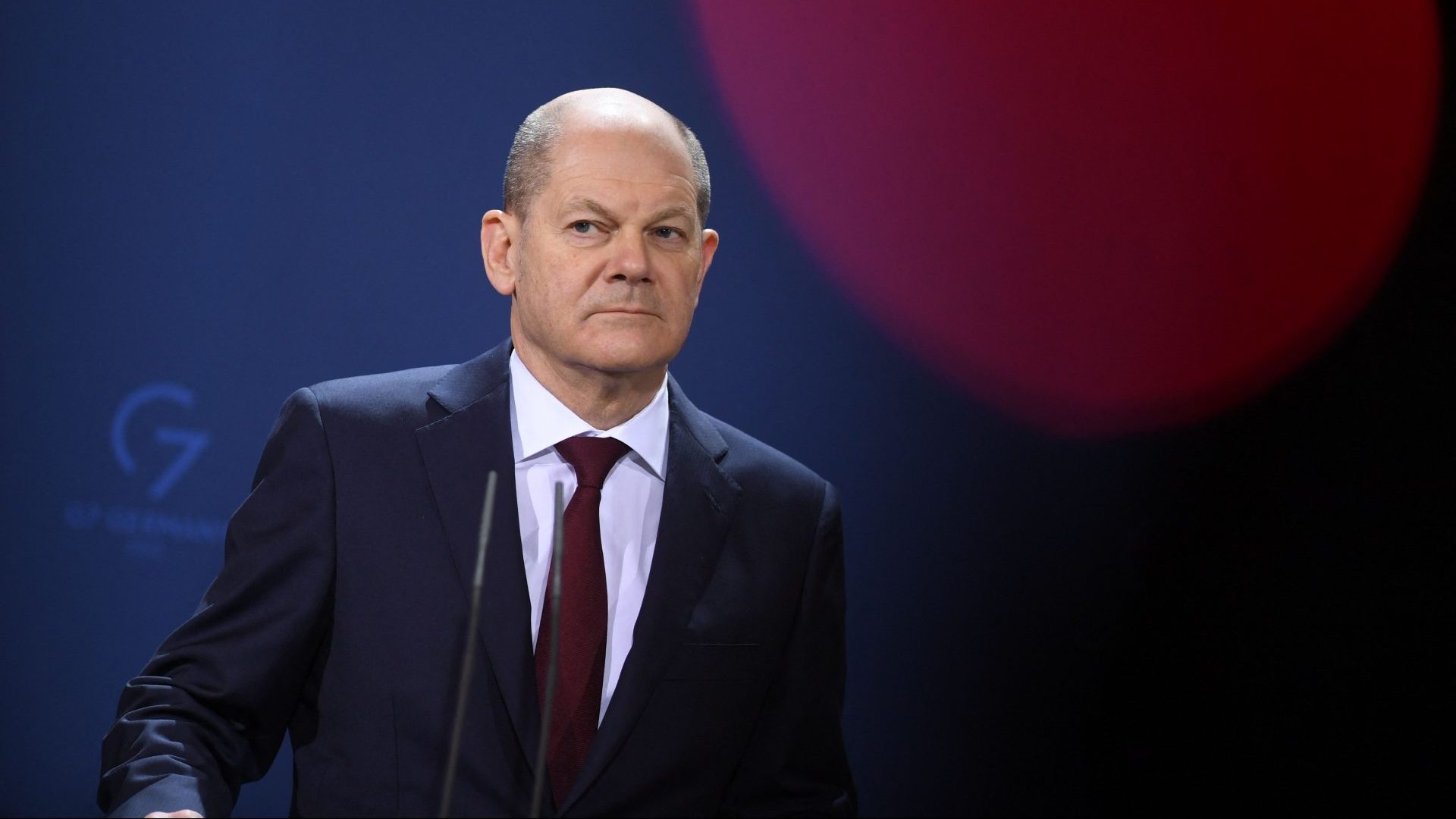As Olaf Scholz conducts last-ditch diplomacy in Kiev and Moscow, is Germany finally confronting its demons about its relationship to Russia?
Senior officials in Berlin are holding out hope that Vladimir Putin will not, even at the 11th hour, give the signal for an invasion of Ukraine. They cite Russian self-interest as their main reason. How would Putin benefit from what could turn out to be a protracted war and protracted ostracization? He has, they continue, surely got what he wants: that he is back at the centre of international relations, after years of being dismissed as a minor irritant.
Time will tell, as they say. Views such as these speak to three long-standing German characteristics: energy dependency, a perpetual sense of guilt arising from crimes committed on the Eastern Front, and an unwavering belief that logic dictates actions on the world stage.
Signs are the mood is hardening. Media coverage of Putin has been sharply critical. Of the Chancellor’s early engagement in the crisis (or lack of it), commentary was excoriating. Scholz won the September general election by saying as little as he could, waiting for his opponents to make mistakes, which they duly did. It has taken him a while to realise that this does not transfer into convincing leadership.
Even now it doesn’t come easily. The main evening news on Sunday juxtaposed the ‘silent chancellor’ with the acceptance speech of Frank-Walter Steinmeier, who had just been sworn in for a second term as president. Steinmeier made an impassioned defence of democratic values at home and abroad, directly telling Putin to “lift the noose off Ukraine’s neck”. Russia, he added, was solely responsible for the conflict. The role of president is non-party but part political – to set the wider parameters for public life.
Only last June, Steinmeier was committing the cardinal error that for so long has dominated German-Russian relations, confusing the country’s war debt to the Russian public (and the wider ex-USSR which of course includes Ukraine) with friendliness to the Kremlin.
The Social Democrats, his party and that of Scholz, have yet to answer for, less still apologise for, the actions of former chancellor Gerhard Schröder, who continues to act as Putin’s cheerleader in chief, while securing lucrative jobs with Russia’s top energy concerns, Rosneft and Gazprom. Newspapers are now, belatedly, beginning to ask more searching questions about this sordid pact. Bild, the big-selling tabloid, today talked of Putin “buying up worn-out ex-statesmen from the West”.
So much comes back to Nordstream-2, the pipeline built to pump gas directly from Russia to Germany and further into Western Europe, while circumventing Ukraine. It is currently on ‘technical’ hold. The US Congress voted, even before this latest confrontation with Putin, to slap huge fines on any company involved in it, if it is switched on.
While Scholz refuses to refer to it directly, has Germany tacitly given the Americans the nod, as part of wide-ranging sanctions that would be imposed on Russia in the event of any attack on Ukraine? German officials talk of a ‘meeting of minds’ with Washington and of a ‘new era for NATO’, which has found ‘renewed purpose’.
When Serbia attacked Kosovo in 1998, Germany stepped up. It acted decisively again in 2014 when Russia annexed Crimea and fomented war in eastern Ukraine. In between it reverted to type. Has Putin’s latest gambit really changed the way Berlin does business, or will this, once again, end up a false dawn?










